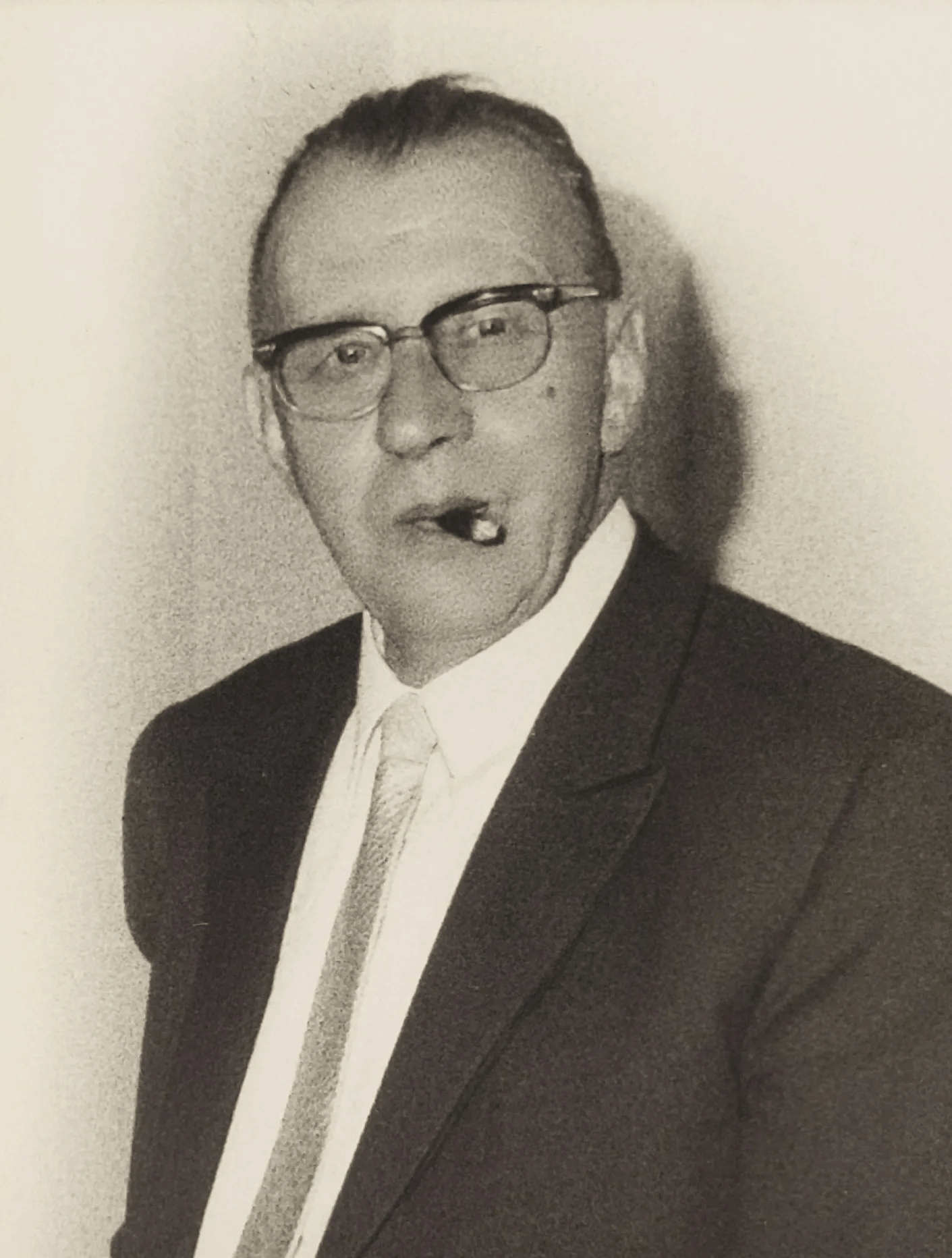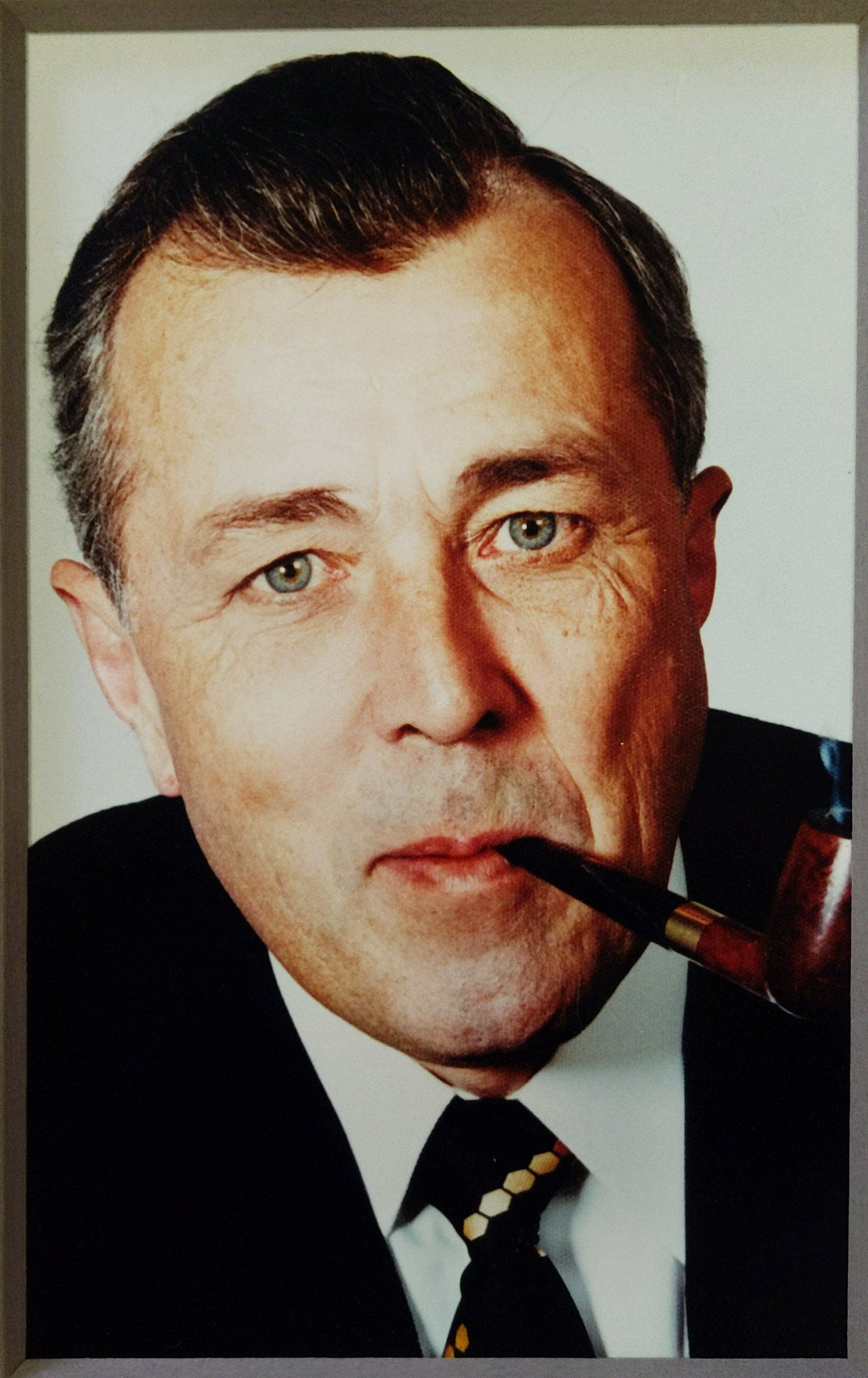Our story - always in motion
The Fritz Kork Kom.-Ges. was founded on January 1st, 1946 by Fritz Kork and Johannes Siebel in Lübeck. Both men were previously executives at the Bernhard Berghaus machine factory in Lübeck, which was dismantled as an armaments factory after 1945. In addition to toolmaking, the Kork company program initially included simple devices and equipment for medical practices and hospitals.
The company Kork had produced a press tool for a supplier of the then Federal Central Railway Office in Göttingen. When this supplier went bankrupt, the Kork company presented itself to the BZA to carry out the deliveries. From then on, the company continuously carried out orders and developments for Deutsche Bahn. These were mainly battery containers, reflectors and housings for lighting, as well as the most diverse parts of mechanical processing for ongoing entertainment.
Due to the conversion of the passenger coaches from flat belt systems for power generation to systems with direct drive, the company Kork has developed a worm gear that made it possible to use two drive shafts to couple generators. Approximately 8,000 systems have been supplied by these gearboxes
for systems with DC generators D 25 and D 26, with saddle carriers and elastic coupling or with a cardan shaft. In the course of the development of a lightweight three-phase system, gearboxes were developed for the three-phase generators of the companies AEG, Bosch and Siemens for a comprehensive large-scale test by DB. After the end of these tests, the Bosch cork three-phase system in block design was designated as the standard system.
Over the years, improved by innovations such as the flexible coupling and labyrinth seals, etc., around 9,500 systems have been delivered.
In parallel to the development of the power supply systems, new containers for batteries, semiconductor inverters and the like were continuously designed and delivered in accordance with the wishes of DB and the wagon industry. A number of new developments were also advanced in the wagon interior lighting sector and implemented in many projects.
In 1963, Mr. Siebel sold his business share to his nephew Fritz Homrich from Freudenberg (Siegerland), Mr. Kork's son-in-law. This also started the project of a new building and in autumn 1965 the old premises in the old town of Lübeck and the rented rooms in Schlutup could be left in favor of a modern workplace. Unfortunately, Kork died much too early in January 1973. However, the company lives on in its spirit and with its products. The development of the Achsbuchs gearbox
expanded across the DB area to the African and Asian markets. There were further new developments for generators from Stone (London and Madrid) and EVR (Paris).
In 1978 the majority of SHM Südhydraulik Marktoberdorf was acquired and the production of the hydraulic rotary lobe cylinders, the inventor of which was founded by Steinbach, was moved to Lübeck. This considerably expanded the product range and, in combination with the transmission technology and the experience from the hydraulic program, a hydraulic wheel set pump
was developed for the DB. In 1980 the company was restructured and the name changed to Kork & Homrich GmbH.
In 1985, the management passed to Andreas Homrich, the eldest son of Fritz Homrich. The latter initially successfully continued the family business together with his father, set new impulses and ensured continuous further developments beyond the death of his father. The end of the 80s and 90s were marked by the largest order in the company's history to date, the construction of various components for the ICE.
In 2005, the family separated and the name was changed to Homrich Maschinenbau GmbH. As a result, Ulrike Homrich, the wife of Andreas Homrich, became part of the management.
On 01.01.2008 the move to the modern new building in Bad Schwartau took place, where the entire mechanical production, assembly and generous storage capacities under one roof offer optimal conditions for an efficient workflow. Outsourced in rented premises, containers were manufactured for the CrossRail underground line in London until 2018. This product area was abandoned in August 2018 due to fluctuating orders and increasing welding requirements for the railways.
Concentrated on the core competencies of hydraulic swivel drives
and rail vehicle technology
as well as mechanical production, the company steers towards a secure future. While Andreas Homrich will gradually withdraw from the active management, from 01.01.2020 Mr. Frank Biller was appointed as another managing director. Under his leadership, the company will continue to develop in the future in order to always meet the tasks of the future.




















